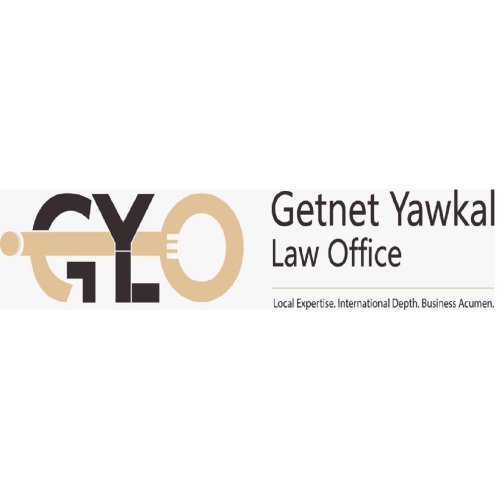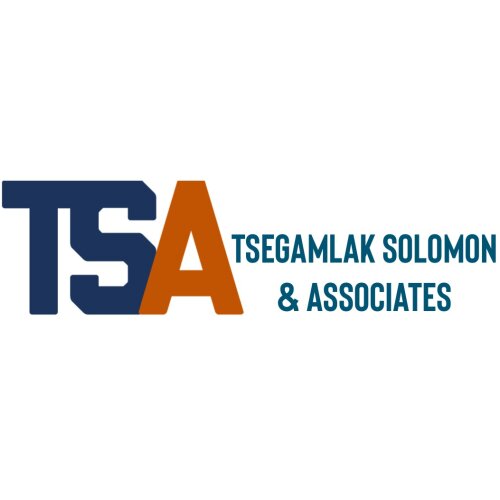Best Restructuring & Insolvency Lawyers in Addis Ababa
Share your needs with us, get contacted by law firms.
Free. Takes 2 min.
List of the best lawyers in Addis Ababa, Ethiopia
About Restructuring & Insolvency Law in Addis Ababa, Ethiopia
Restructuring and insolvency law in Addis Ababa, Ethiopia, governs the legal frameworks and procedures for dealing with financially distressed businesses and individuals. This area of law sets out how companies and individuals can reorganize their financial obligations, settle debts with creditors, or, when necessary, wind down operations in a structured manner. Ethiopia's approach to restructuring and insolvency has evolved in recent years, especially with the introduction of the Commercial Code Proclamation No. 1243/2021, which has modernized many aspects of business, insolvency, and bankruptcy procedures. The main goal of these laws is to balance the interests of creditors, debtors, employees, and other stakeholders to promote financial stability and economic development in the country.
Why You May Need a Lawyer
Restructuring and insolvency matters can be complex and often involve multiple stakeholders and strict legal procedures. You may need a lawyer in the following situations:
- Your business is unable to repay its debts and faces possible bankruptcy.
- You or your company have received a notice of insolvency proceedings from creditors or authorities.
- You want to restructure your debts with creditors to avoid insolvency or bankruptcy.
- You are a creditor seeking to recover debts from an insolvent debtor in Addis Ababa.
- You require advice on how to protect your assets during insolvency or restructuring.
- You are an investor interested in acquiring distressed assets or companies.
- You work in a management or directorial position and need guidance on your duties and risks during financial distress.
Legal counsel can help you navigate the complexities of local laws, represent you in court or negotiation settings, and help you achieve the best possible outcome.
Local Laws Overview
Some of the key legal frameworks that apply to restructuring and insolvency in Addis Ababa, Ethiopia include:
- Commercial Code Proclamation No. 1243/2021 - This is the primary legislation governing company, insolvency, and restructuring procedures. It provides updated rules for bankruptcy, liquidation, business rescue, and debt reorganization.
- Ethiopian Civil Procedure Code - Relevant for court proceedings related to insolvency and debt recovery.
- Ethiopian Financial Institutions Proclamation - Has special provisions if the insolvent party is a bank or insurance company.
Key aspects of the law include:
- Procedures for voluntary and involuntary bankruptcy filings.
- Requirements for appointing insolvency administrators or liquidators.
- Steps for asset valuation and liquidation.
- Order of priority for creditor claims.
- Mechanisms for business rescue, restructuring, and negotiation with creditors before formal liquidation.
- Duties and potential liabilities of directors during financial distress or insolvency.
Ethiopian insolvency laws have been shaped to encourage business rescue where possible, protect the rights of creditors, and provide protection from abuse or fraud by debtors.
Frequently Asked Questions
What is the difference between restructuring and insolvency?
Restructuring involves reorganizing a company or individual's financial obligations to restore financial health and avoid insolvency. Insolvency refers to the legal status of being unable to pay debts as they come due, which may lead to bankruptcy or liquidation proceedings.
What legal procedures must be followed for bankruptcy in Addis Ababa?
A bankruptcy petition can be filed by the debtor or creditors at a competent court. The court will assess the application, appoint an insolvency administrator, and oversee the process, including notifying creditors and managing the debtor's assets.
Can a company continue to operate during insolvency proceedings?
In some cases, courts or insolvency administrators may allow a troubled company to continue operating while efforts are made to restructure or sell the business. This is especially the case if there is a chance for business rescue.
What are the rights of creditors during insolvency proceedings?
Creditors have the right to file claims, participate in meetings, inspect documents, and vote on certain proposals. Their priority for repayment depends on the classification of their claims under the law.
Are directors personally liable for company debts in insolvency?
Directors are generally not personally liable unless they have acted fraudulently, engaged in misconduct, or failed in their duties. However, if laws have been violated, courts may order directors to pay compensation to creditors.
How can I avoid insolvency as a business owner?
Early action is key, such as renegotiating payment terms, seeking business advice, and considering informal restructuring with the help of legal counsel before matters escalate to court proceedings.
What assets are protected from creditors in insolvency?
Ethiopian law outlines some exempt assets, for instance, essential personal property, but most business assets and some personal assets of the debtor may be liquidated to pay creditors.
How long does the insolvency process typically take?
The timeline varies depending on the complexity of the case, the nature of the assets, and the cooperation of stakeholders. Some matters may be resolved in a few months, while others can take years.
Can foreigners participate in insolvency proceedings in Ethiopia?
Yes, foreign creditors and investors have the right to intervene in Ethiopian insolvency cases, subject to complying with local procedures and documentation requirements.
What happens to employees during business insolvency?
Employees' claims for unpaid wages and benefits are generally given priority in insolvency proceedings. However, restructuring or bankruptcy may result in layoffs or changes to employment terms.
Additional Resources
If you need further information or support, consider these resources and organizations:
- Federal High Court, Commercial Bench - Handles most insolvency cases in Addis Ababa.
- Ministry of Justice (MoJ) - Provides oversight and information on commercial law and legal procedures.
- Ethiopian Bar Association - A list of licensed insolvency lawyers and legal practitioners.
- Addis Ababa Chamber of Commerce - Offers business support and referrals to legal expertise.
- Financial Intelligence Centre - Monitors financial transactions and may be involved in cases of fraud or asset tracing.
Next Steps
If you are facing financial distress or believe a restructuring or insolvency may be necessary, take the following actions:
- Gather all relevant financial documents, such as contracts, loan agreements, and statements.
- Consult a qualified restructuring and insolvency lawyer in Addis Ababa for tailored legal advice based on your situation.
- Assess your options, whether it is negotiating with creditors, seeking business rescue, or preparing for formal insolvency proceedings.
- Take early action to maximize your legal protections and minimize potential liabilities or losses.
- Keep open, honest communication with creditors, employees, and stakeholders to manage expectations and explore possible solutions.
A lawyer can guide you through the legal process, ensure compliance with Ethiopian laws, and help protect your interests during difficult times.
Lawzana helps you find the best lawyers and law firms in Addis Ababa through a curated and pre-screened list of qualified legal professionals. Our platform offers rankings and detailed profiles of attorneys and law firms, allowing you to compare based on practice areas, including Restructuring & Insolvency, experience, and client feedback.
Each profile includes a description of the firm's areas of practice, client reviews, team members and partners, year of establishment, spoken languages, office locations, contact information, social media presence, and any published articles or resources. Most firms on our platform speak English and are experienced in both local and international legal matters.
Get a quote from top-rated law firms in Addis Ababa, Ethiopia — quickly, securely, and without unnecessary hassle.
Disclaimer:
The information provided on this page is for general informational purposes only and does not constitute legal advice. While we strive to ensure the accuracy and relevance of the content, legal information may change over time, and interpretations of the law can vary. You should always consult with a qualified legal professional for advice specific to your situation.
We disclaim all liability for actions taken or not taken based on the content of this page. If you believe any information is incorrect or outdated, please contact us, and we will review and update it where appropriate.

















